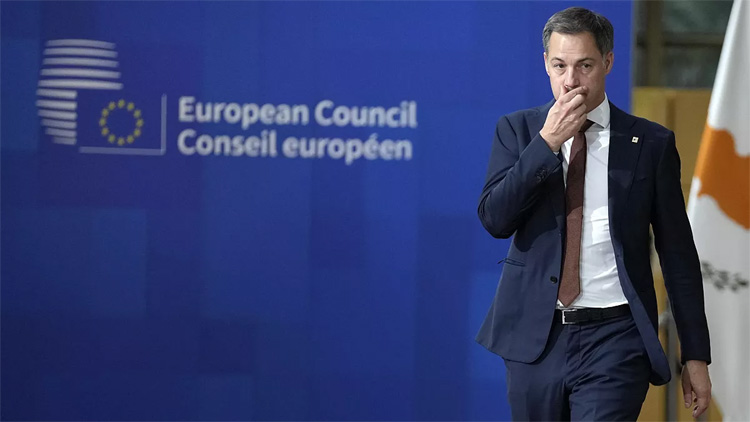Crunch time for Belgian EU presidency as race to close crucial legislative files begins
As Belgium prepares to take over the presidency of the Council of the European Union for the 13th time, a much-changed Europe awaits it compared to when it was last in the same position.
The country will take the lead in representing EU member states in January during what promises to be a turbulent political period, with the European elections starting at the beginning of June.
In practice, the Belgian presidency will not have the usual full six months to complete the 150 dossiers that are on the table, but Prime Minister Alexander De Croo has already said that the main priority will be to protect citizens and ensure that the EU is well-positioned for the future.
“Protect, strengthen, anticipate” are the watchwords of the presidency, while “the second element is to strengthen our economy,” De Croo told reporters at a launch event of his country’s term.
“An economy that creates our prosperity, creates jobs and finances our social solidarity.
“Helping this economy make the transition to a sustainable economy, and having an industry that helps us achieve the objectives of the Green Deal.”
Concerning the EU’s Green Deal, the Belgian Presidency will seek to find an agreement on carbon emissions from trucks and buses. It will also have the task of reaching an inter-institutional compromise on packaging, the aim of which is to reduce, reuse and recycle these types of products.
Finally, Belgium will oversee the first discussions on the bloc’s environmental targets for 2040.
A Belgian-negotiated compromise will also be required on the revision of the EU’s multiannual financial framework, otherwise known as its long-term budget.
Last week, EU leaders could not agree on a budget increase requested by the European Commission, instead kicking the can down the road to an extraordinary summit on February 1.
Finally, reform of the EU and the possible enlargement of it will also be discussed during Belgium’s six-month presidency.
“It’s about preparing our Europe to perform better and before we can become bigger, we have to become better,” De Croo said. “We have to become better at taking decisions more quickly, which helps us to maintain our unity.”
Member states will be closely watching how the Belgian authorities handle the issue of enlargement, as the EU celebrates the 20th anniversary of its eastward enlargement in the first half of the year.

